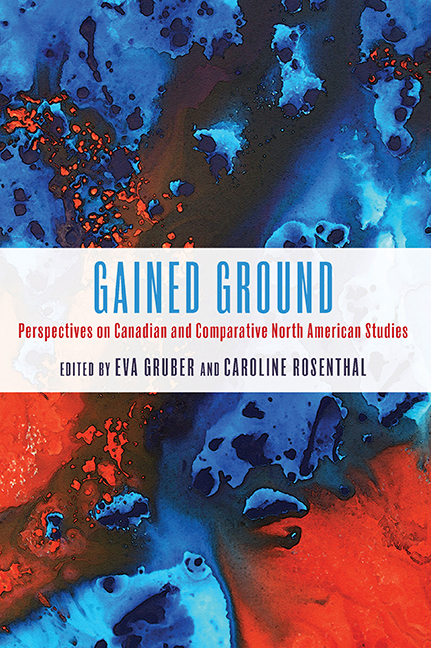Book contents
- Frontmatter
- Contents
- Preface and Acknowledgments
- Introduction
- Part I The Genesis of Canadian and Comparative North American Studies
- Part II Comparative North American Studies: Literary Case Studies
- Part III Comparative North American Studies beyond Print
- Comparative North American Opera: Individualism and National Identity
- “Who Really Lives There?”: (Meta–)Tourism and the Canada Pavilion at Epcot
- Contact Prints: Reading Margaret Atwood's The Door and the MaddAddam Trilogy through the Lens of Photography
- Cup–idity, or Poetic Larceny in Transatlantic Contexts: Margaret Atwood's “Stealing the Hummingbird Cup”
- Part IV Coda: Reingard Nischik and Transatlantic Canadian Criticism
- Index
Comparative North American Opera: Individualism and National Identity
from Part III - Comparative North American Studies beyond Print
Published online by Cambridge University Press: 26 October 2019
- Frontmatter
- Contents
- Preface and Acknowledgments
- Introduction
- Part I The Genesis of Canadian and Comparative North American Studies
- Part II Comparative North American Studies: Literary Case Studies
- Part III Comparative North American Studies beyond Print
- Comparative North American Opera: Individualism and National Identity
- “Who Really Lives There?”: (Meta–)Tourism and the Canada Pavilion at Epcot
- Contact Prints: Reading Margaret Atwood's The Door and the MaddAddam Trilogy through the Lens of Photography
- Cup–idity, or Poetic Larceny in Transatlantic Contexts: Margaret Atwood's “Stealing the Hummingbird Cup”
- Part IV Coda: Reingard Nischik and Transatlantic Canadian Criticism
- Index
Summary
Opera and Nationhood
AS AN ART FORM, opera was born in the waning years of the sixteenth century in Florence, Italy, where a coterie of poets, musicians, and philosophers known as the Camerata attempted to re-create ancient Greek drama. They had surmised that music had accompanied the great tragedies, though only the play texts, not the music, had survived into Early Modern Europe. When opera came into being, one of its very first subjects was, perhaps not surprisingly, the story of one individual named Orpheus. Since he was both a poet and a musician, there was likely no more perfect subject to inaugurate an art form that brought together words and music. While the years after the founding of this new genre saw many other mythological and historical individuals from antiquity make their way onto the operatic stage, the nineteenth century—the time of European nation-building and the ideological consolidation of the nation-state—brought a shift in operatic subject matter to the literary as well as historical past of each new nation.
In Italy and Germany, especially, opera came to play a significant role not only in the development of a national musical idiom but also in promoting nationalism and a sense of national destiny. Giuseppe Verdi and Richard Wagner often named their operas after individual heroes, but it was their musical choruses that took on the collective role (and symbolic power) of the national voice of a people in nineteenth-century Europe. Verdi's 1842 opera Nabucco, in fact, is remembered today less for the story of its title character than for its famous chorus of the oppressed Israelites—the Hebrew slaves with whom Italian patriots under Austro- Hungarian rule identified strongly. This chorus, “Va pensiero,” is still the unofficial national anthem of Italy. However, the chorus in general plays a (politically and operatically) much less important role in North American opera than does the individual—especially the actual historical individual.
While the United States and Canada share a European colonial history and culture, the two nations have developed differently in political terms, with one democracy founded by a defiant and defining revolution and the other gradually evolving to value “Peace, Order, and Good Government.”
- Type
- Chapter
- Information
- Gained GroundPerspectives on Canadian and Comparative North American Studies, pp. 149 - 160Publisher: Boydell & BrewerPrint publication year: 2018

